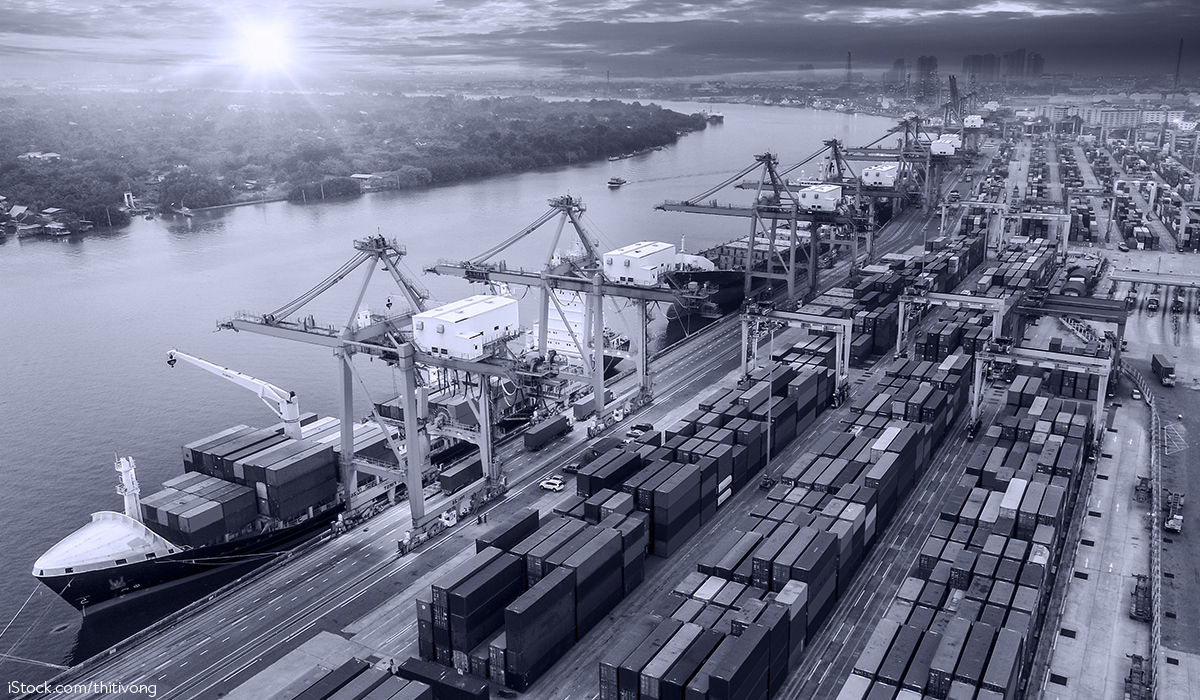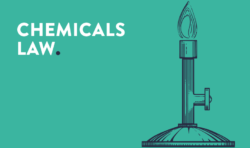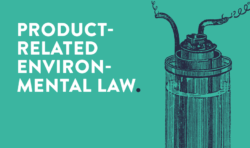This article marks the start of a series of blog posts entitled “What’s changing in 2023”, in which the experts from the Produktkanzlei team will summarize the relevant topics from their respective areas of expertise in an overview format.
Below, the main changes in product-related environmental law that will come into force in 2023 are presented first (see A.). This is followed by an outlook on the legal developments to be expected in this area in 2023 (see B.). Finally, some current aspects are presented with regard to the entry into force of the national supply chain due diligence law (“Lieferkettensorgfaltspflichtengesetz”) and an outlook is given on the emerging developments on EU level (see C.).
A. Product-related environmental law
The legal changes in product-related environmental law that came into force on 01.01.2023 were largely the result of the major amendments to the relevant legal acts from last year or even the year before last. In view of the comprehensive reform efforts at EU level, the German legislator has probably held back with its own national accents currently.
Electrical and Electronic Equipment Act (ElektroG)
In the area of electrical equipment legislation under the ElektroG, two new obligations are to be observed as of 01.01.2023:
- Labelling also of devices for exclusive use in other than private households with the symbol of the crossed-out wheeled bin according to Sec. 9 para. 2 sentence 1 ElektroG. According to Sec 46 para. 2 ElektroG, this requirement applies to all equipment placed on the market, i.e. made available on the market for the first time, in Germany from 01.01.2023. This means that equipment already on the market at that time can continue to be sold without subsequent additions to the labelling. Previously, in Germany, unlike in many other EU member states, such labelling was only required for devices that could at least also be used in private households. For components, as parts without an independent function, no labelling with the symbol of the crossed-out wheeled bin is still required.
- Authorized representatives who have been granted more than 20 registrations are required to be licensed in accordance with Sec. 8 para. 3 sentence 4 in conjunction with Sec. 37 para. 7 ElektroG. Approval is granted by the Stiftung ear to ensure that the authorized representatives have the reliability, expertise, equipment and organization required for the proper fulfillment of their duties. In the future, approval will be linked to a maximum number of registrations that is found to be acceptable when the aforementioned criteria are examined. Information from the Stiftung ear on this can be found in German at: Information on the application for authorization as an authorized representative in accordance with § 37 para. 7 ElektroG.
Furthermore, it was envisaged that from 01.01.2023, operators of electronic marketplaces and fulfillment service providers would only be permitted to offer products or provide their services if the manufacturer had proper registration for the devices concerned. Although this is not a statutory inspection obligation in the narrower legal sense, the aforementioned players will generally check the existence of manufacturer registration in order to prevent sanctions. However, with the First Act Amending the Electrical and Electronic Equipment Act, the Ordinance on Specialized Waste Management Companies and the Federal Nature Conservation Act, which was promulgated on 13.12.2022, the legislator has reacted to a sharp increase in registration applications and the associated backlog in official processing. The effective date of the regulatory complex described here has therefore been postponed by six months, to 01.07.2023.
Finally, reference should be made to the Eighth Ordinance Amending the Electrical and Electronic Equipment Act-Battery Act Fee Ordinance (ElektroGBattGGebV). With this, the fee rates will be adjusted to the fluctuating transaction numbers and the changing total costs of Stiftung ear as of 01.01.2023, in order to ensure that the fee income covers costs but is not profitable. In addition to increases and decreases of individual, already existing fee rates, No. 1.2 of the annex of the ElektroGBattGGebV introduces for the first time a new quantity and transaction independent quarterly fee in the amount of 24.10 Euro per quarter for all manufacturers and authorized representatives registered according to Sec. 6 ElektroG. There is still no comparable quarterly fee for BattG registrations.
Further details are available in our blog posts Amendment of the ElektroG and Amendment of the ElektroG finally adopted.
Packaging Act (VerpackG)
In terms of packaging law, the obligation to offer reusable alternatives to single-use plastic food packaging and single-use beverage cups is in effect since 01.01.2023.
Sec. 33 VerpackG obliges final distributors of single-use plastic food packaging and all single-use beverage cups (i.e., for example, fast-food restaurants, to-go snack bars, kiosks, food trucks, or to-go coffee chains) that are only filled at the final distributor to also offer reusable alternatives. The final distributor is free to hand out the product to the customer in a container that he or she has brought along himself or herself.
The reusable alternatives must be offered for all goods for which single-use packaging is also offered, which refers in particular to the unit size and composition of the goods. Furthermore, the reusable alternative must not be more expensive (apart from the possibility of charging a deposit) and must not be offered at worse conditions. This obligation is flanked by a supplementary obligation to provide information on the reusable alternatives, which must be fulfilled at the point of sale by means of clearly visible and legible information boards or signs. In the event that the goods can be ordered by delivery service, the reference to the reusable alternatives must be made in the presentation media used, for example on the website or in a flyer.
Deviating from this, small final distributors with a maximum of five employees (which is to be determined in relation to working hours) and a maximum of 80 square meters of sales area have an easement according to Sec. 34 VerpackG in that they do not have to offer reusable alternatives themselves, but in this case must at least accept reusable containers brought in by the customers themselves for filling. Without the use of this option, the requirements of Sec. 33 VerpackG remain in force. The ban on discriminating against reusable containers brought in by the customer applies in this context, as do the information requirements regarding the reusable alternative. Finally, for vending machines, which in principle fall under the obligation from Sec. 33 VerpackG, a relief comparable to the small final distributors is provided in Sec. 34 para 2 VerpackG.
Further details are available in our blog-post Amendment of VerpackG – Single-use plastic packaging.
B. Forecast on upcoming developments
Although there will not be massive changes in product-related environmental law at the beginning of 2023 compared to 2022, there are already signs of revolutionary redesigns at the EU level in several regulatory areas.
- First and foremost among these is the European Battery Regulation. After years of tough wrangling, the players involved in the legislative process agreed on a provisional compromise on 09.12.2022 (cf. EU Parliament press release). This still has to be approved by the EU Parliament and the Council in the coming weeks before the Battery Regulation can enter into force in a staggered manner in the coming years. This would transform the first regulatory area from waste legislation to a life-cycle approach, which will impose numerous obligations on all affected economic actors. Further details are available in our blog-posts Draft European Battery Regulation, First Reading in the EU Parliament and General Approach of the Council; for more detail, see Öttinger, elni Review 2021, p. 25 et seq. (full text available HERE).
- Following this regulatory example, the EU Commission published the long-awaited and several times postponed draft of a European Packaging Regulation on 30.11.2022. Here, too, aspects such as sustainable design, minimum recycled content and recyclability are to be introduced, in order to be able to achieve the goals of the EU Green Deal. Further details are available in our blog post Commission proposal for an EU Packaging Regulation.
- In addition, a draft revision of Directive 2011/65/EU (RoHS) is expected in the coming year. In line with the trend, there could also be a transition from a directive to a regulation here, so that the requirements can be further harmonized and specified. In addition, the EU Commission is currently evaluating the impact of Directive 2012/19/EU (WEEE) and will in all likelihood propose a revision here as well.
- Other initiatives that have already been announced in concrete terms relate to the revision of the Textile Labeling Regulation (EU) No. 1007/2011, the introduction of extended producer responsibility for textiles, a European law on critical raw materials, the revision of the Waste Shipment Regulation (EC) No. 1013/2006 and the revision of the Cosmetics Regulation (EC) No. 1223/2009.
At the national level, the current draft for a single-use plastics fund act is currently causing considerable debate. According to the draft, manufacturers of covered single-use plastic products (to-go food containers, packers and wrappers with food content for to-go consumption, beverage cups and containers including their closures and lids, plastic carrier bags with a wall thickness of less than 50 μm, wet wipes, balloons and tobacco filter (products)) are to be obliged to register in the so-called Single-Use Plastic Fund and to pay a levy yet to be defined by statutory order. The municipalities concerned are to be able to obtain funds from the aforementioned fund by means of an application procedure in order to compensate for the cleaning costs arising from carelessly discarded single-use plastic products.
Further details are available in our blog post Draft Single-Use Plastic Fund Act.
C. Due diligence obligations in the supply chain
The German Supply Chain Due Diligence Act (“Lieferkettensorgfaltspflichtengesetz – LkSG”) came into force in its relevant parts on 01.01.2023. Since then, it applies directly to all domestic companies with generally at least 3,000 employees and to domestic independent branches of foreign companies with generally also at least 3,000 employees. As of 01.01.2024, this threshold will drop to 1,000 employees.
However, there is still little contour to the practical implementation of the due diligence obligations stipulated by law (conducting a risk analysis, taking preventive and remedial measures, introducing a complaints procedure and fulfilling documentation and reporting obligations). The indeterminate legal terms contained in the law, together with the requirement of appropriateness that permeates all obligations, give the companies concerned a great deal of leeway. However, these are again enormously restricted by the guidance documents published by the responsible Federal Office for Economic Affairs and Export Control (BAFA), since the guidance documents seem more like additional requirements and not like practicable assistance. The following information has already been published in English (much more information and in particular the guidance documents are currently available only in German):
In addition, more and more industry associations have become active and are publishing industry-specific assistance and communication papers. Just recently, for example, BVMed – Bundesverband Medizintechnologie e.V. – published a handout on the practical implementation of the LkSG in the medtech sector.
In parallel to the German developments, an increasing mesh of supply chain-related legislative acts is also emerging at the EU level to protect human rights and the environment. In addition to the already existing Regulation (EU) 2017/821 laying down supply chain due diligence obligations for Union importers of tin, tantalum and tungsten, their ores, and gold originating from conflict-affected and high-risk areas (Conflict Minerals Regulation), legislative procedures are currently underway on three other pieces of legislation:
- Proposal for a Regulation on the making available on the Union market as well as export from the Union of certain commodities and products associated with deforestation and forest degradation – on 06.12.2022, a provisional agreement was reached between the institutions involved in the legislative process in the trilogue negotiations, so that a final decision can be expected soon; from the entry into force of the regulation, there is then still a transitional period of 18 months
- Proposal for a Regulation on prohibiting products made with forced labour on the Union market – the legislative process is still in its early stages here
- Proposal for a Directive on Corporate Sustainability Due Diligence – this legislative procedure is also still in its early stages
Overall, it can be expected that the requirements for human rights and environmental due diligence in international supply chains will increase enormously in the near future. This will not only affect large companies, but also SMEs through their interconnectedness in supply chains.
Further details are available in our blog post EU Corporate Sustainability Due Diligence Directive.
Do you have any questions about this news, or would you like to discuss the news with the author? Please contact: Michael Öttinger





